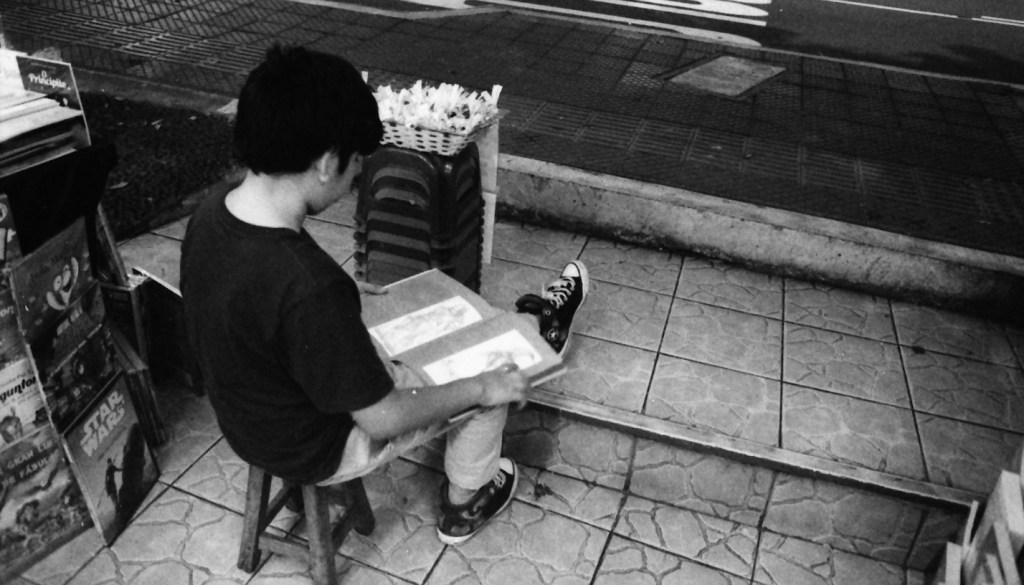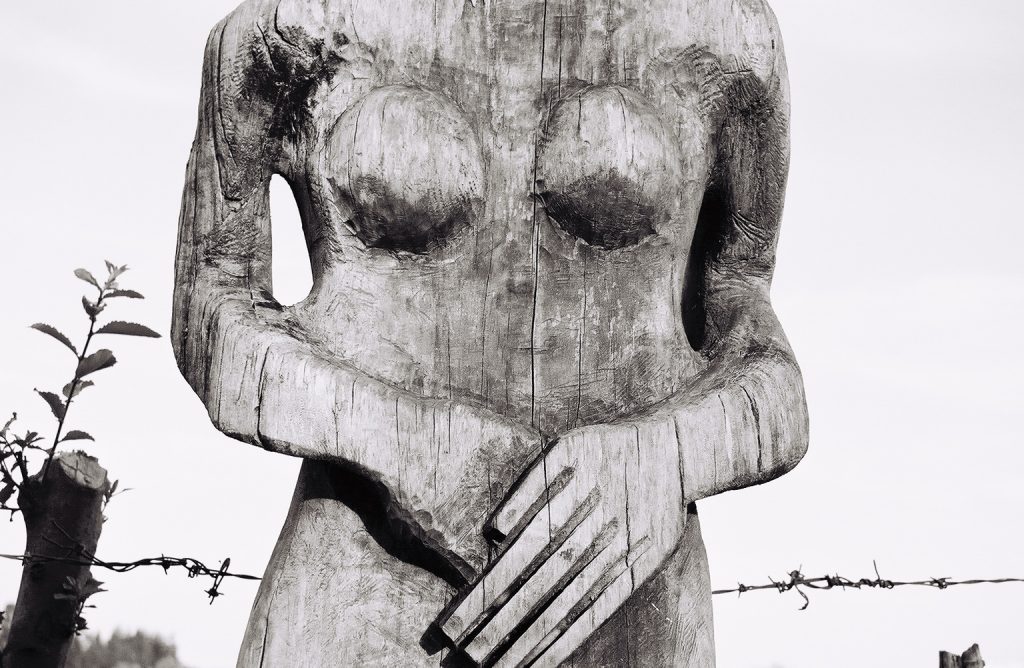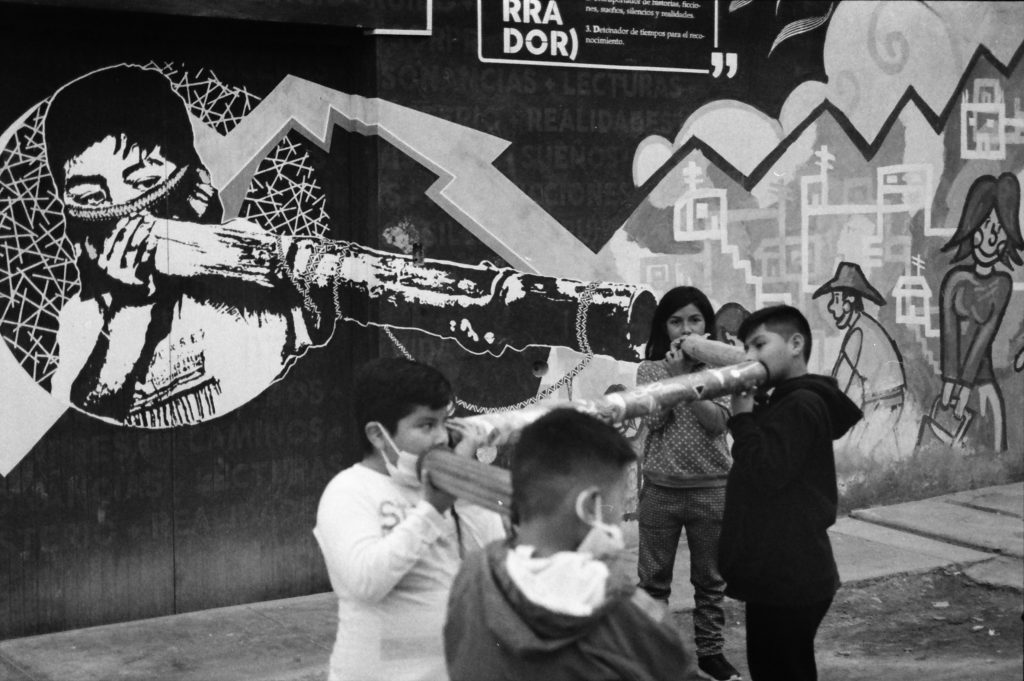
VOLUME 1, ISSUE IV
Las diversas formas
de pensar y vivir la diversidad
CARTA DEL EDITOR
REVARTE como en cada número toma de frente los temas para sacudir los cánones, así que en este número podrán encontrar una amplitud de voces, perspectivas, reflexiones, experiencias, y lugares desde donde se vive la diversidad.
Pensar en la diversidad hoy en día es un pecado. Pues el término mismo reta el dogma, el credo, el status quo, el llamado orden establecido que define lo que es “normal” y lo que se entiende como regla o como canon. Así lo que sale de esa regla, de ese canon es estigmatizado, rechazado, condenado al infierno, segregado, y discriminado; asimismo, los grupos de poder ofrecen términos denigrantes: “apócrifo”, “anormal”, “enfermo”, “violenta”, y “desadaptado”. Las fuerzas del orden buscan así, entonces, “asimilar”, y “normalizar”, darle el rostro aceptable y la versión aceptable a lo que es diverso. Pero esas lectura cómodas, no ayudan a la vida, no ayudan a que el ser humano avance, porque solo perpetúa los sistemas de opresión.
Por tanto es importante reconocer que en los últimos 100 años se han librado luchas a muerte que iniciaron con voces sin micrófono, con páginas impresas en mimeógrafo, con marchas al inicio tímidas con carteles y con diseños que retaban a la normalidad. Poco a poco los movimientos feministas que retan el patriarcado han elevado su voz con autoridad, los movimientos LGBTQ+ que retan la heterogeneidad “sagrada” y la masculinidad tóxica que domina el mundo, los movimientos indígenas que retan el neoliberalismo y la protección de sus tierras, los movimientos de inmigrantes que retan el orden mundial, han creado un crisol que funde la historia, la desarticula, la desintegra, la cuestiona, y de la cual emergen nuevos entendimientos y nuevas narrativas.
De este crisol también nacen nuevas palabras, términos y usos del lenguaje, todos esto enfrentan resistencia por sectores hegemónicos, que no desean reconocer la existencia de la diversidad, porque reconocer el lenguaje es finalmente reconocer la existencia de lo que siempre ha estado presente, de lo que siempre ha existido, pero que había sido orillado y encubierto.
La “normalidad” o quienes viven dentro de ella, se quejan constante de la protesta que les causa disonancia “no grafiten”, “no marchen”, “no levanten su voz”, “no hablen su lengua”, y “no respiren”.
Por tanto pensar en diversidad resulta incómodo para grandes sectores hoy en día, porque trae consigo nuevos retos ontológicos y epistemológicos para el ser humano. Por un lado, ontológicos, porque el ser humano ya no puede ser definido de una manera patriarcal o desde un orden y filosofía occidental. Retos epistemológicos, porque entonces reconocemos que hay muchos saberes y muchas formas de generar y expresar conocimientos, y de acercarse a la existencia. Fue el sociólogo Orlando Fals Borda que dio uso a ese término que el Círculo de Investigaciones Participativas de CCATE abraza en sus reflexiones: “El ser sentipensante”. El conocimiento que va más allá de una noción científica, que también es sentimiento,es espíritu, es mística, es diálogo existencial.
Así que les invitamos a explorar la poesía, la literatura, los podcast, los cortometrajes, y los ensayos, que nos enriquecen con el profundo sentido humano que comunican y que han sido escritos y/o producidos desde varias comunidades e identidades.
Asimismo, en este número encontrará las voces, dibujos, y reflexiones de jóvenes, de niños, de niñas y de adolescentes como Olivia, Ruth, Luisa, y Alison quienes traen una frescura a la revista con reflexiones profundas que los adultos debemos pensar y leer. También destaca el arte de las madres, y de las mujeres adultas que luchan ya sea en la periferia de Lima en Puente Piedra con “El Quijote para la vida” en el artículo de Lis Vania Pérez Quispe y “Mujeres Transformadoras”, o con el podcast del Círculo de Investigaciones Participativas de CCATE cuyas autoras (Lourdes Flores, Diana Lugo, Salome Flores, Guadalupe Castillo, y Laura Sánchez) reflexionan sobre sus raíces culturales y la diversidad de sus experiencias a partir del fotovoz.
Al número también se han sumado estudiantes jóvenes, inmigrantes que marcan un ejemplo para esta generación, siendo ellas y ellos de origen latinoamericano, estudian posgrados en la Universidad de Pennsylvania, como son el caso de Jancarlos Montoya y de Natalie Delgado.
Les invitamos a que se acerquen y se sumen a este espacio donde la diversidad ES.
Letter from the editor
The different ways of thinking and living diversity
REVARTE, as in each issue, takes the themes head-on to shake up the canons, so in this issue you will be able to find a breadth of voices, perspectives, reflections, experiences, and places from where diversity is experienced.
Thinking about diversity today is a sin. Well, the term itself challenges the dogma, the creed, the status quo, the so-called established order that defines what is “normal” and what is understood as a rule. So what comes out of that rule, that canon, is stigmatized, rejected, condemned to hell, segregated, and discriminated against; Likewise, it acquires denigrating terms given by those who control the systems: “apocryphal”, “abnormal”, “sick”, “violent”, and “maladjusted”. The forces of order then seek that normality should “assimilate” and “normalize”, to give an acceptable face and an acceptable version to what is diverse. But these comfortable readings do not help life, they do not help human beings advance, because they only perpetuate systems of oppression.
Therefore, it is important to recognize that in the last 100 years there have been fights to the death that began with voices without a microphone, with pages printed on a mimeograph machine, with timid marches at the beginning with posters and with designs that challenged normality. Little by little, the feminist movements that challenge patriarchy have raised their voices with authority, the LGBTQ+ movements that challenge the “sacred” heterogeneity and the toxic masculinity that dominates the world, the indigenous movements that challenge neoliberalism and the protection of their lands, the immigrant movements that challenge the world order have created a crucible that melts history, dismantles it, disintegrates it, questions it, and from which new understandings and new narratives will emerge.
From this crucible, new words, terms and uses of language are also born, all of which face resistance from hegemonic sectors, which do not wish to recognize the existence of diversity, because to recognize language is to finally recognize the existence of what has always been present, of what has always existed, but had been skirted and covered up.
“Normality” or those who live within it, constantly complain about the protest that causes them dissonance “don’t graffiti”, “don’t march”, “don’t raise your voice”, “don’t speak their language”, and “don’t breathe”. .
Therefore, thinking about diversity is uncomfortable for large sectors today, because it brings with it new ontological and epistemological challenges for human beings. On the one hand, ontological, because the human being can no longer be defined in a patriarchal way or from a Western order and philosophy. Epistemological challenges, because then we recognize that there is much knowledge and many ways of generating and expressing knowledge, and of approaching existence. It was the sociologist Orlando Fals Borda who gave use to that term that the CCATE Participatory Research Circle embraces in its reflections: “The sentipensant being.” Knowledge that goes beyond a scientific notion, which is also feeling, is spirit, is mystical, is existential dialogue.
We invite you to explore poetry, literature, podcasts, short films, and essays, which enrich us with the deep human meaning they communicate and that have been written and/or produced from various communities and identities.
Likewise, in this issue you will find the voices, drawings, and reflections of young people, boys, girls, and adolescents like Olivia, Ruth, Luisa, and Alison who bring a freshness to the magazine with deep reflections that adults should think about and read. . It also highlights the art of mothers, and of adult women who fight either on the outskirts of Lima in Puente Piedra with “Don Quixote for Life” in the article by Lis Vania Pérez Quispe and “Mujeres Transformadoras”, or with the podcast from the CCATE Participatory Research Circle whose authors (Lourdes Flores, Diana Lugo, Salome Flores, Guadalupe Castillo, and Laura Sánchez) reflect on their cultural roots and the diversity of their experiences through photovoice.
Young students have also been added to the number, immigrants who set an example for this generation, being of Latin American origin, studying postgraduate degrees at the University of Pennsylvania, as is the case of Jancarlos Montoya and Natalie Delgado.
We invite you to come and join this space where diversity IS.

VOLUME 1, ISSUE III
Las diversas formas
de vivir y entender la educación

VOLUME 1, ISSUE II
Las diversas formas
de vivir el arte

VOLUME 1, ISSUE I
Las diversas formas
de vivir la democracia
